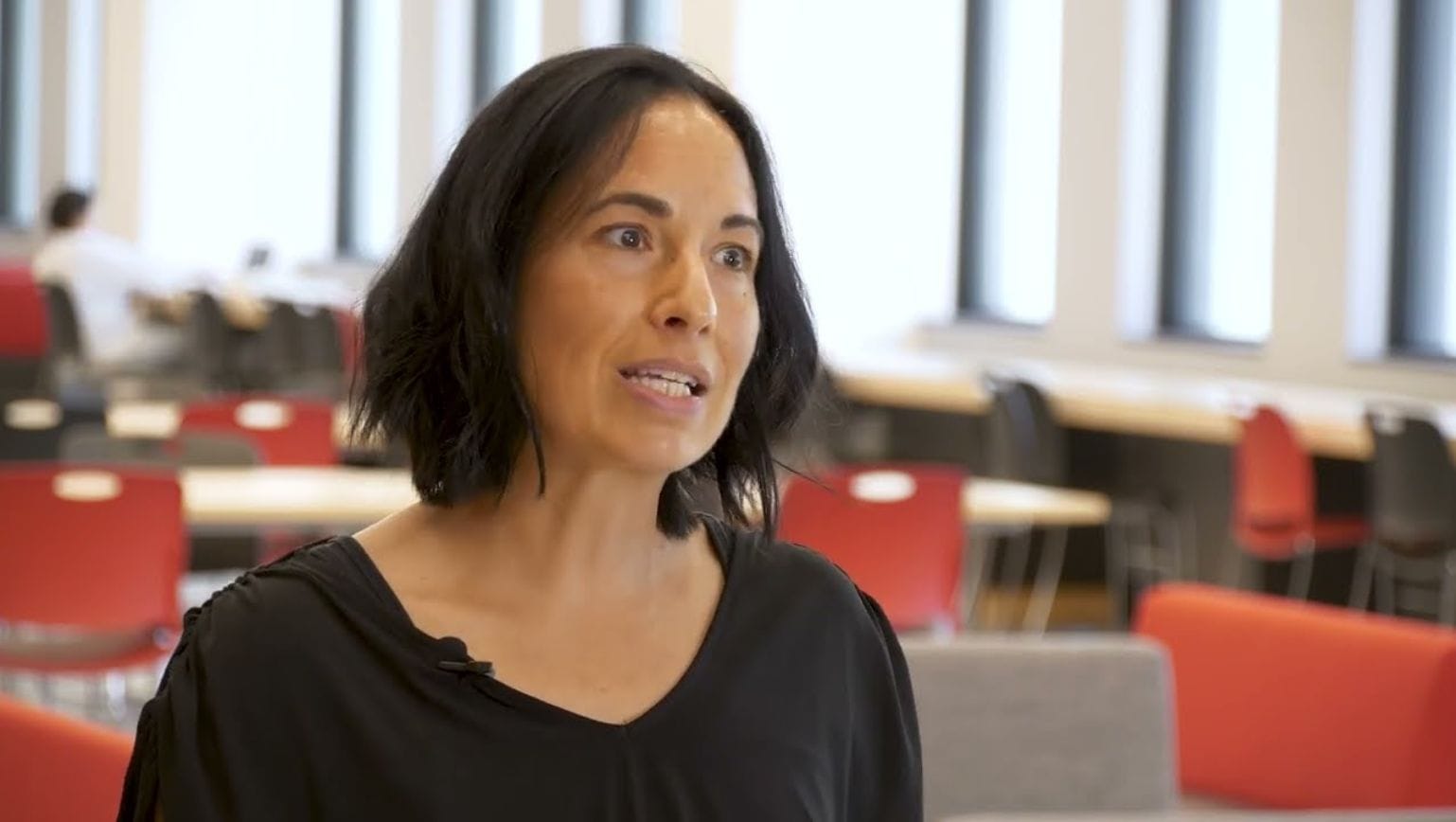Ève Dubé

Ève Dubé is a Canadian medical anthropologist based in Québec City, Québec. She is notable in the declared COVID-19 pandemic due to her position on the National Advisory Committee on Immunization (NACI), and contributions as a member of the Royal Society of Canada (RSC) Task Force on COVID-19.[1]
Dubé is a researcher in the Scientific Group on Immunization at the Institut national de santé publique du Québec (INSPQ) and is a researcher in the area of infectious and immune diseases at the CHU Sainte-Justine Research Center. She is also an invited professor at the Laval University Department of Anthropology,[2] and a member of Immunize Canada.[3]
Her research focuses on social, cultural and ethical issues around infectious diseases prevention. Most of her research is related to vaccine hesitancy among patients and health care providers. She is the lead investigator of the Social Sciences and Humanities Network (SSHN) of the Canadian Immunization Research Network (CIRN). From 2013 to 2014, she was a member of the World Health Organization (WHO) working group on vaccine hesitancy and she is currently part of the Global Advisory Committee on Vaccine Safety where she is mainly involved in vaccine risk communication.[4]
History
Dubé obtained her PhD in medical anthropology at Laval University.[2:1]
In 2008, Dubé joined the Scientific Group on Immunization at INSPQ as a researcher.[5]
COVID-19
Dubé conducted research in 2020, during which time she was working with the National Advisory Committee on Immunization (NACI), on “false information” inhibiting a successful campaign with COVID-19 vaccines.[6] She also studied willingness to accept a COVID-19 injection among children.[7]
As part of her vaccine hesitancy research, Dubé published a paper in March 2021 on the “Tailoring Immunization Programmes (TIP)” approach developed by the WHO Regional Office for Europe to increase vaccine uptake.[8] She also received funding from the European Union’s Horizon 2020 research and innovation program for a paper on vaccine hesitancy.[9] Further funding has come from the Direction de la Recherche, des Études, de l'Évaluation et des Statistiques (DREES).[10]
Dubé acted as a peer reviewer for a Council of Canadian Academies (CCA) report titled Fault Lines which analyzed “misinformation” and “disinformation” during the COVID-19 pandemic. Published in January 2023, the report was commissioned and paid for by Innovation, Science and Economic Development Canada (ISED).[11]
Publications
Additional notable publications by Dubé include:
- April 2021: "Vaccine Hesitancy, Acceptance, and Anti-Vaccination: Trends and Future Prospects for Public Health"
- Published in Annual Review of Public Health
- Co-authored by Jeremy Ward, Pierre Verger and Noni MacDonald
External links
Comeau, J., Dubé, E., Graham, J., Greenwood, M., Harmon, S., MacDonald, N. E., McElhaney, J., McMurtry, C. M., Middleton, A., Steenbeek, A., & Tadio, A. (2021). Enhancing COVID-19 Vaccine Acceptance in Canada. Royal Society of Canada. https://web.archive.org/web/20230826185938/https://rsc-src.ca/sites/default/files/VA PB_EN_1.pdf ↩︎
Ève Dubé – Research Center. Université Laval. Retrieved April 9, 2022, from http://archive.today/2022.04.10-054952/https://www.crchudequebec.ulaval.ca/en/research/researchers/eve-dube/ ↩︎ ↩︎
Final Program. (2016, December 6). Canadian Immunization Conference. https://web.archive.org/web/20220320171400/https://www.cpha.ca/sites/default/files/uploads/conferences/2021/cic16-final-program-en.pdf ↩︎
Public Health Agency of Canada. (2022, February 25). National Advisory Committee on Immunization (NACI): Membership and representation. Government of Canada. https://web.archive.org/web/20220318105951/https://www.canada.ca/en/public-health/services/immunization/national-advisory-committee-on-immunization-naci/naci-membership-representation.html#fn1-rf ↩︎
Dr. Ève Dubé. (2014, October 23). CIRN | Canadian Immunization Research Network. http://archive.today/2022.04.10-060955/https://cirnetwork.ca/researcher/dr-eve-dube/ ↩︎
Rotolo, B., Dubé, E., Vivion, M., MacDonald, S. E., & Meyer, S. B. (2022). Hesitancy towards COVID-19 vaccines on social media in Canada. Vaccine, 40(19). https://doi.org/10.1016/j.vaccine.2022.03.024 ↩︎
McKinnon, B., Abalovi, K., Vandermorris, A., Dubé, È., Tuong Nguyen, C., Billou, N., Fortin, G., Parvez, M., Senga, J., Abou-malhab, J., Antoine Bellamy, M., Quach, C., & Zinszer, K. (2022). Using human-centred design to tackle COVID-19 vaccine hesitancy for children and youth: a protocol for a mixed-methods study in Montreal, Canada. BMJ Open, 12(4), e061908. https://doi.org/10.1136/bmjopen-2022-061908 ↩︎
Habersaat, K., MacDonald, N. E., & Ève Dubé, È. (2021). Designing tailored interventions to address barriers to vaccination. Canada Communicable Disease Report, 47(3), 166–169. https://doi.org/10.14745/ccdr.v47i03a07 ↩︎
Verger, P., Botelho-Nevers, E., Garrison, A., Gagnon, D., Gagneur, A., Gagneux-Brunon, A., & Dubé, E. (2022). Vaccine hesitancy in health-care providers in Western countries: a narrative review. Expert Review of Vaccines, 21(7), 1–19. https://doi.org/10.1080/14760584.2022.2056026 ↩︎
Verger, P., Fressard, L., Soveri, A., Dauby, N., Fasce, A., Karlsson, L., Lewandowsky, S., Schmid, P., Dubé, E., & Gagneur, A. (2022). An instrument to measure psychosocial determinants of health care professionals’ vaccination behavior: Validation of the Pro-VC-Be questionnaire. Expert Review of Vaccines, 21(5), 1–17. https://doi.org/10.1080/14760584.2022.2046467 ↩︎
Fault Lines. (2023, January 26). CCA Reports. https://web.archive.org/web/20230128035132/https://www.cca-reports.ca/reports/the-socioeconomic-impacts-of-health-and-science-misinformation/ ↩︎